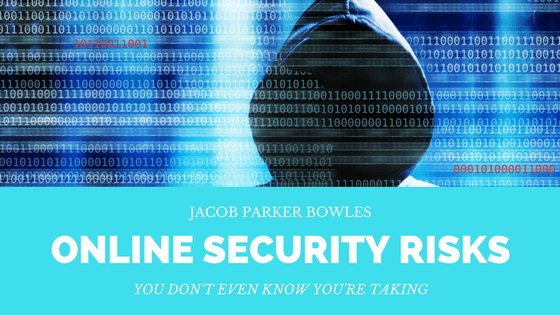A touch of a button or a swipe of a finger can take you further than ever before. Today it’s incredibly easy to open an account, create a budget, apply for a loan, or transfer your money using only a screen and a wifi connection. It takes so little thought to manage your finances electronically that is all too tempting to get casual about your online financial data. When it comes to financial safety, however, it’s everyone’s responsibility to make sure your most valuable information is safe.
Of course, you’ve probably heard most of this before — whether or not you actually do it, we all know that we’re supposed to make a new, unique password for every account we make. There are some security risks, however, that you might not have thought of — which is precisely what makes them so dangerous!
Be WiFi Wise
Is your home wifi secured? If not, almost anyone can hop on with you and easily access all of the information you are transmitting. It’s an easy fix to put a password on your home networks, but don’t let your guard down yet.
Make sure you’re always aware of where you are connecting. Open networks such as coffee shops or airports are not secured, which means that if you’re doing your online shopping while you wait for your plane or checking your bank balance as you wait in line for your afternoon pick-me-up, you’re offering your credit card info to anyone who is searching for it. Save any online activity that involves the transfer of sensitive information for the privacy of your own home.
Watch the Little Things
Online calendars, to-do lists, notepads, and organizer apps end up storing a lot of our information, but they aren’t designed for security. Be vigilant and make sure that you don’t record any of your account numbers or passwords in places like this without thinking about it.
All of these rules go for your phone as well. Be careful about pulling up your bank app or browsing amazon when you’re outside or your secured home network. It’s a good practice to keep a strong password on your phone as well. Those little devices end up storing a lot of information about us!
Guard Your Details!
Be wary of automatic login features! Sure it’s convenient to let your browser fill in your username and password for you, but that means that anyone else who happens across your computer can log in to your accounts as well. That information is now saved online in your browser, which is not nearly as safe as a designated password manager. For the same reasons, always take the time to logout of sensitive accounts when you are finished.
You can never be too careful about who you give your bank account details to. Whenever possible, it pays to use a trustworthy third-party system to make online purchase. Popular services like PayPal and ApplePay facilitate the payment of your online shopping bills without ever giving your information to the website you are purchasing from. That way, only a few highly reputable and encrypted companies and accounts have access to your information, rather than every company from which you’ve ever made a spontaneous, late night online purchase.

